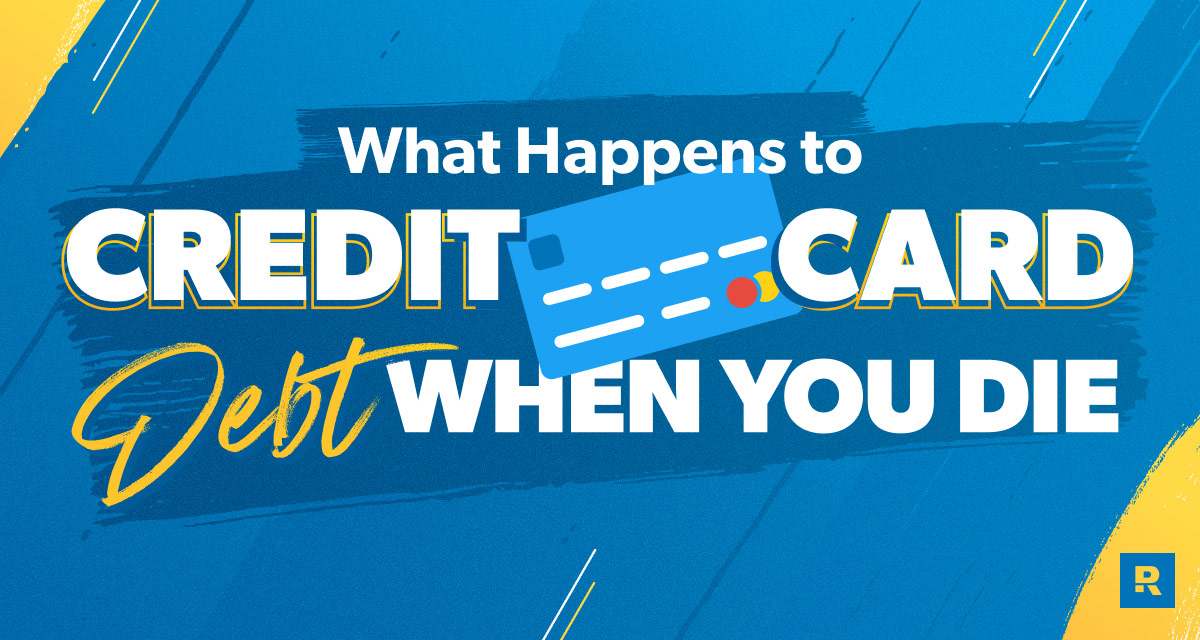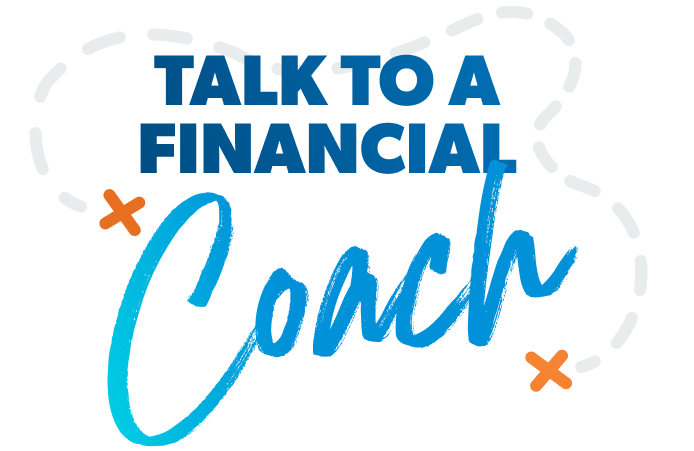What Happens to Credit Card Debt When You Die
7 Min Read | May 31, 2024

Maybe you feel like you’ll never pay off your credit card debt. Or maybe you’re worried about inheriting credit card debt from a relative. Either way, we’re going to break down exactly what happens to someone’s credit card debt after they’re gone.
The good news is, there are ways to ditch your credit card debt for good—so it doesn’t continue to haunt you or your loved ones.
Key Takeaways
- If someone dies with credit card debt, it usually gets paid for by their estate.
- Joint card holders automatically become responsible for any remaining credit card debt.
- In some cases, surviving spouses can become responsible for credit card debt.
- No matter how much credit card debt you have, there is still hope!
What Happens to Credit Card Debt When You Die?
In most cases, if someone dies with credit card debt, the remaining balance is paid for out of their estate. (A person’s estate is all the assets they own—such as bank accounts, houses, cars and other possessions.) But if there’s a joint card holder, the credit card debt would automatically become their responsibility.
It’s Paid For by Your Estate
Like with most debt after death, credit card debt gets paid for by the estate of the deceased (the legal term for the person who died).
The executor (someone chosen to represent the deceased’s wishes) handles the probate process. This is when the deceased’s taxes and debts get paid, as well as when property and possessions are given to the people listed in their will (aka their beneficiaries).
During probate, the executor will use the deceased’s estate to pay off their creditors (whoever they owe money to). If a person’s estate does not have enough cash to cover all their debts, the executor may have to sell their assets to settle with the creditors (this is called liquidation).
Assets that list a beneficiary in a document other than the will (like life insurance policies, retirement accounts or living trusts) don’t have to go through the probate process. But everything else is fair game—even if it’s listed in a will. So, if you were planning on passing down your vintage car or signed guitar, just know a creditor could get their hands on it before your kids do.
Joint Card Holders Become Responsible
If the credit card has a joint account holder listed, that person automatically becomes responsible for keeping up with the payments and any debt associated with the card. (This does not include authorized card users, though.)
The good news is, if no one else’s name is listed on the credit card account besides the deceased’s, the debt does not pass on to anyone else.
So, this is a reminder to never cosign for someone else or let someone cosign for you! Because if the person can’t pay (whether they’re dead or alive), you could get stuck paying for their debt. It’s messy all the way around.
Your Spouse May Inherit Credit Card Debt
Some states have community property laws that make surviving spouses responsible for any debt the deceased took on during their marriage. And yep, that includes credit card debt.
Community property states include: Arizona, California, Idaho, Louisiana, Nevada, New Mexico, Texas, Washington and Wisconsin. So, if you live in one of these states, just know your spouse could end up taking on your debt should something happen to you.
What If Your Estate Cannot Cover Your Credit Card Debt?
If a person’s estate cannot cover their credit card debt after they die, the debt usually goes unpaid. That’s because credit card debt is unsecured debt, meaning there’s no collateral (something the lender can take if you don’t pay) like there is for a car loan or a mortgage.
Don’t let credit control your life! Learn the proven plan to win with money.
So, if there isn’t enough money in the estate to cover the credit card debt balance, creditors will typically take a loss and write off the amount.
But that doesn’t mean you should rack up a bunch of credit card debt while you can! Any debt you die with can eat away at whatever you hope to leave behind for your loved ones.
Plus, with an average interest rate of 22.75%, credit card debt is stealing from you every day you’re alive!1 You can’t afford to carry that debt to your grave.
Your Debt Is Not a Death Sentence
No matter how much credit card debt (or any other debt) you have, there’s still hope! It’s never too late to get the help you need.
A great first step is finding a counselor who can help you emotionally navigate your specific situation. And when you’re ready, a financial coach can walk you through your next money steps and help you get back on your feet. Just remember, you don’t have to do this alone!
If you are feeling suicidal, please reach out to the 988 Suicide & Crisis Lifeline by calling or texting 988.
Personalized Debt Help
A financial coach will give you the one-on-one guidance and accountability you need to finally pay off your debt!
How to Deal With Credit Card Debt
You don’t have to live with credit card debt for the rest of your life. Here are some steps you can take to get rid of credit card debt once and for all!
Break Up With Your Credit Cards
You can’t solve a problem while also continuing to create it. It’s time to stop borrowing money and say goodbye to credit cards—for good. That means cutting up your cards so you can no longer use them. Yep, every last one.
But how will I pay for things? With cash or a debit card (aka money you actually have in your bank account). That may sound scary right now (especially if you’ve been relying on credit for a while), but you will survive without a credit card. In fact, you’ll thrive! Because let’s face it: Credit cards haven’t done you any favors. They’re not a safety net—they’re a debt trap. And you’re better off without them.
Also, watch out for those so-called “quick fixes” for your credit card debt—things like balance transfers, debt consolidation or other types of loans. All they do is trade one debt for another and make your problem way worse. The only way out is to attack your credit card debt head on.
Get on a Budget
Everyone needs a budget. But if you’ve been relying on credit cards to get by, a budget is a total game changer (in a good way).
When you have a budget, you can make sure your basic expenses are covered—so you don’t have to borrow money to get through the month. Plus, it helps you find more money to throw at your debt!
If credit card debt has you feeling out of control, a budget will help you take control. Get started by creating a free budget with the EveryDollar budgeting app. If you’re sick and tired of credit card debt ruling your life, a budget is your first step toward freedom!
Use the Debt Snowball
There are a lot of debt-payoff methods out there. But the debt snowball is the best one, hands down!
Start by listing all your debts from smallest to largest. (This includes any other debt you may have, like student loans or car loans.) Then pay minimum payments on all your debts, except the smallest. Throw as much money as you can toward paying off that smallest debt. Once it’s gone, take what you were paying on that debt and add it to your payment for the next-smallest debt. Repeat until you’re completely debt-free!
Breaking down your credit card debt into smaller chunks makes it feel less overwhelming. And as you knock out each card balance one by one, those quick wins will motivate you to plow through the rest of your debt. That’s why the debt snowball works—because it actually helps you make progress!
Take a Financial Peace University Class
We’ve all made mistakes with money. But you don’t have to stay stuck and stressed. You just need the right plan to turn things around.
If you want to finally take control of your money, Financial Peace University (FPU) will show you how. In this class, you’ll learn how to pay off your debt, save for emergencies, and build wealth for the future. And the best part is, you’ve got a community of people who are on the same journey as you, cheering you on!
FPU has helped nearly 10 million people change their lives—and now it’s your turn. Join a Financial Peace University class today!



